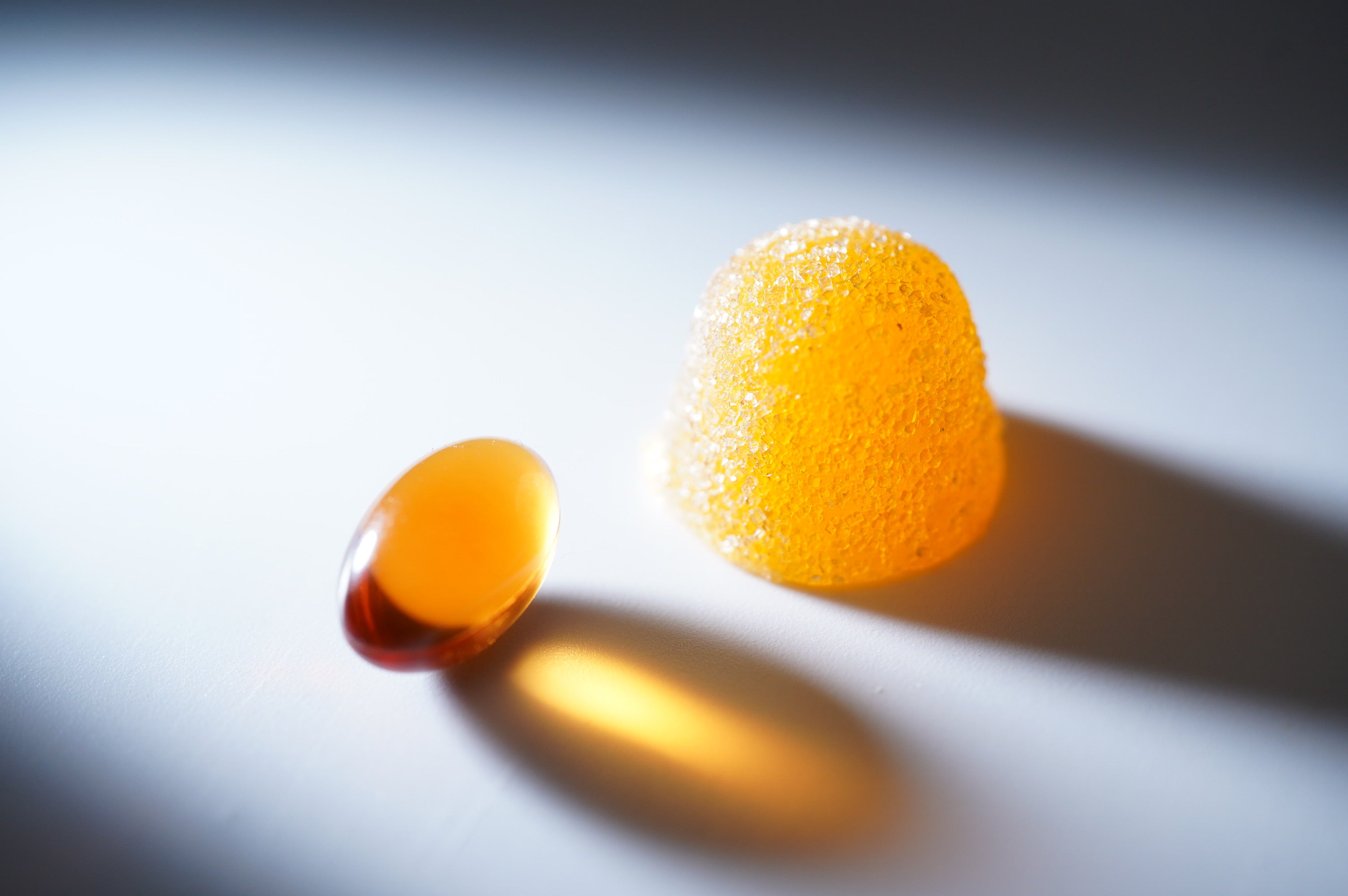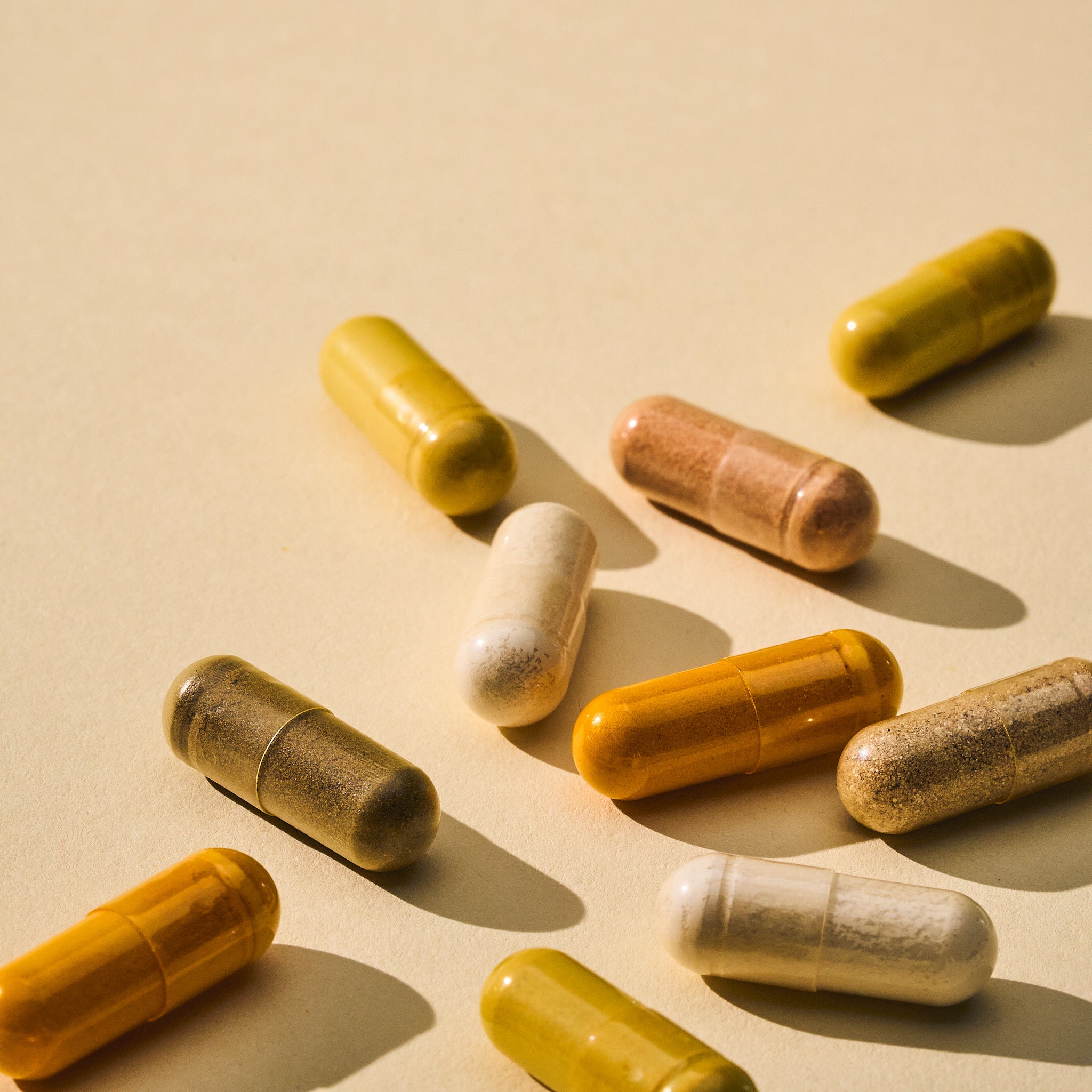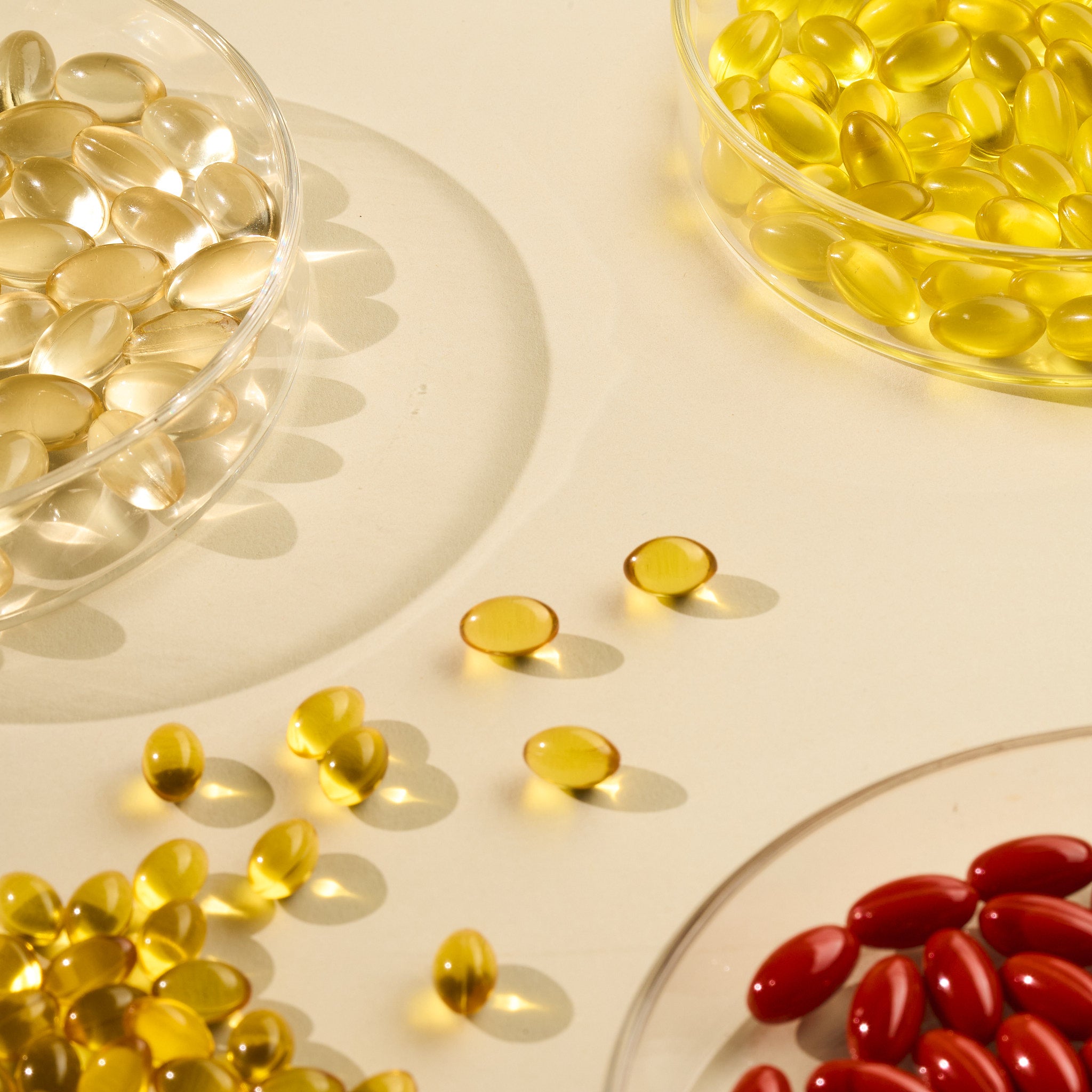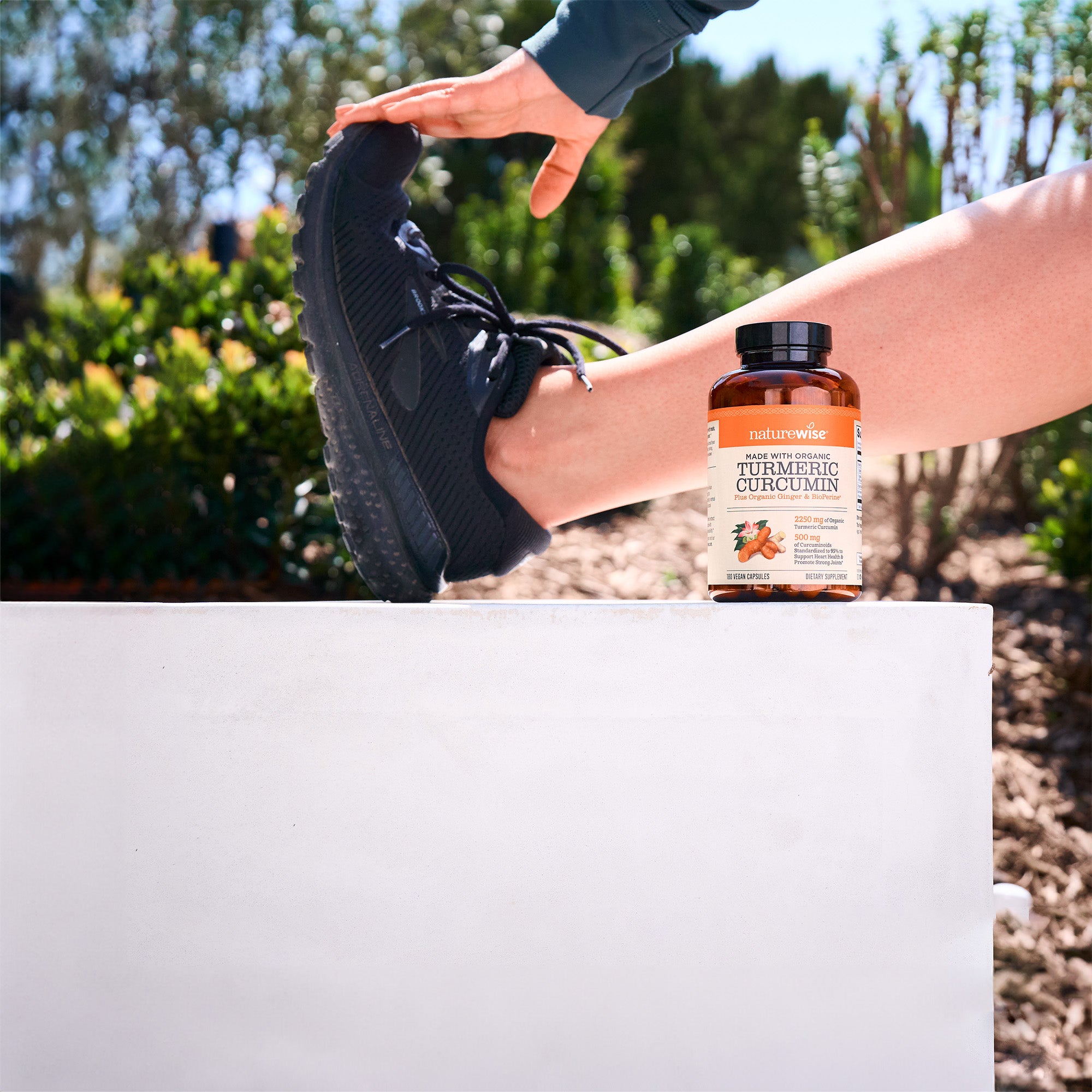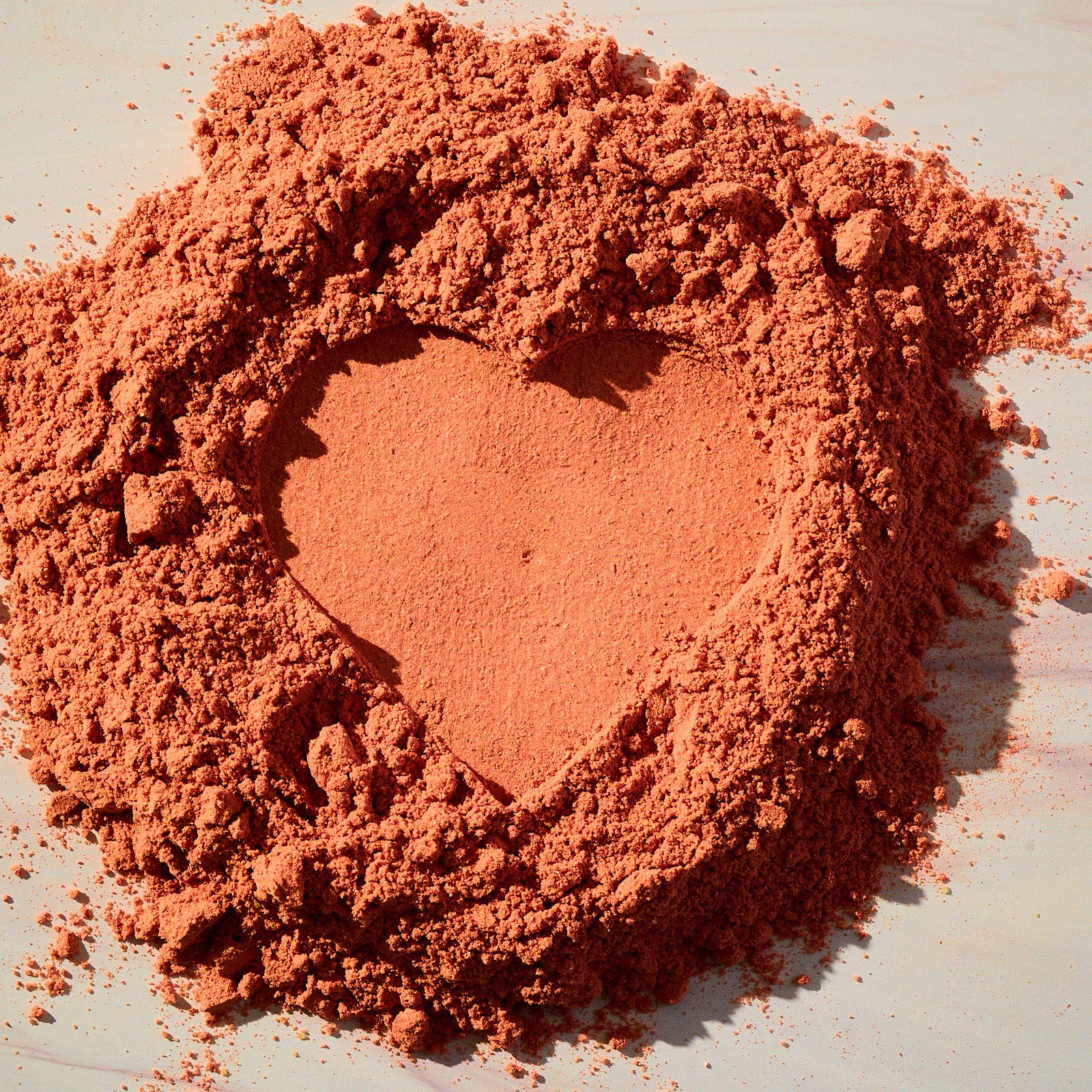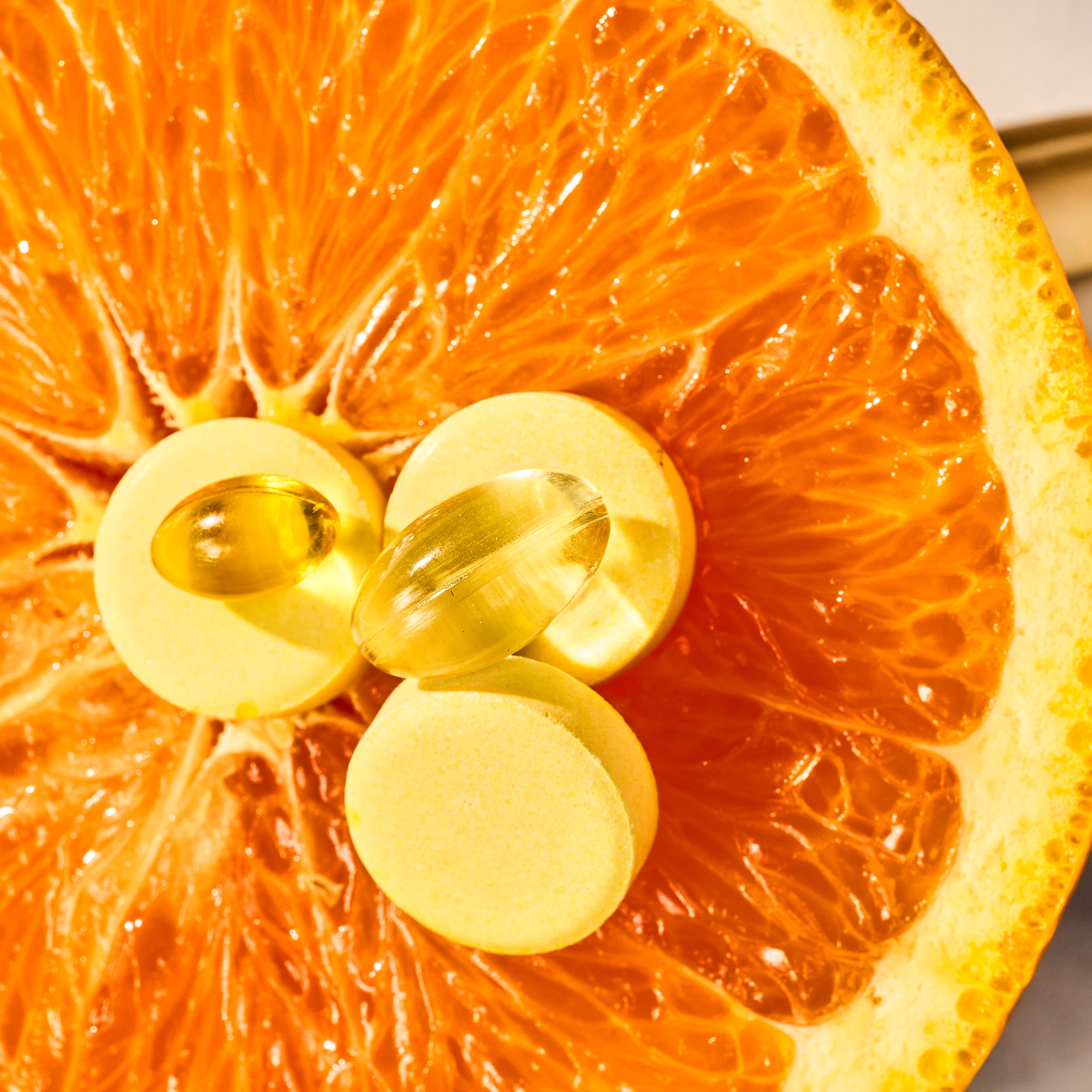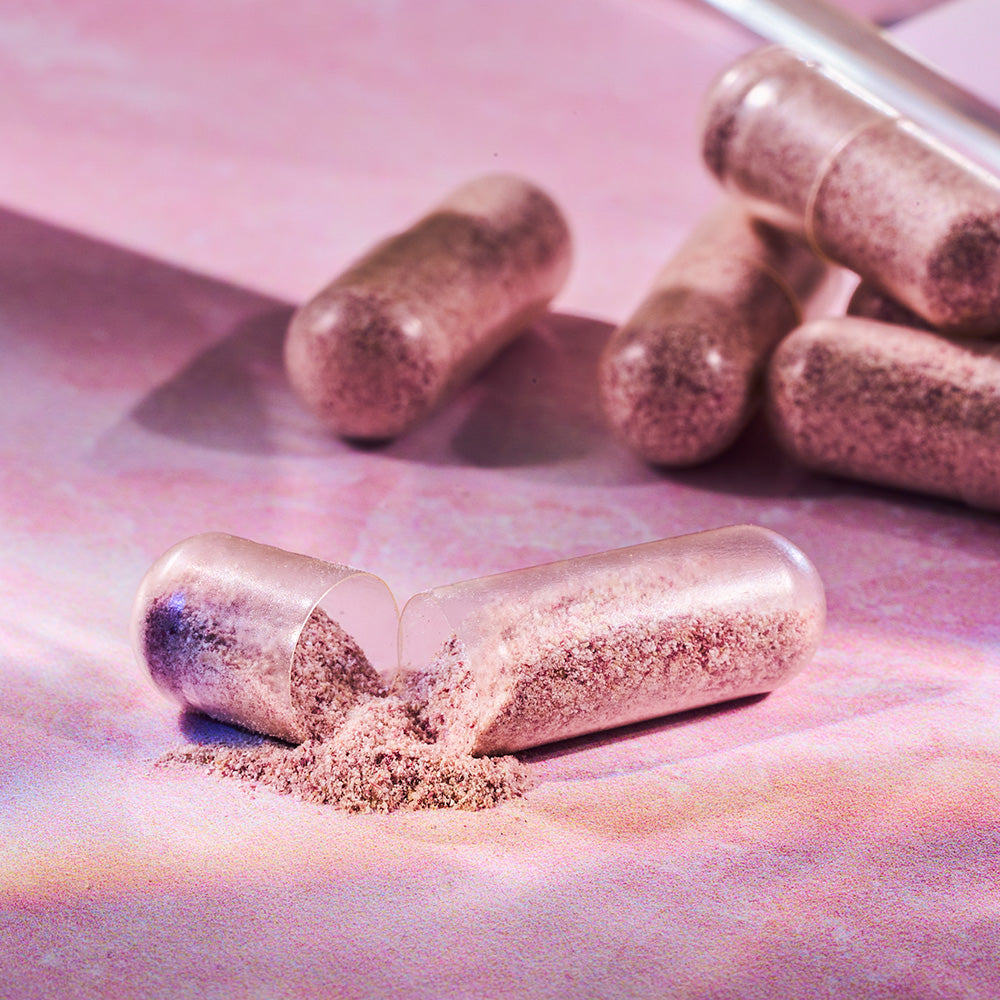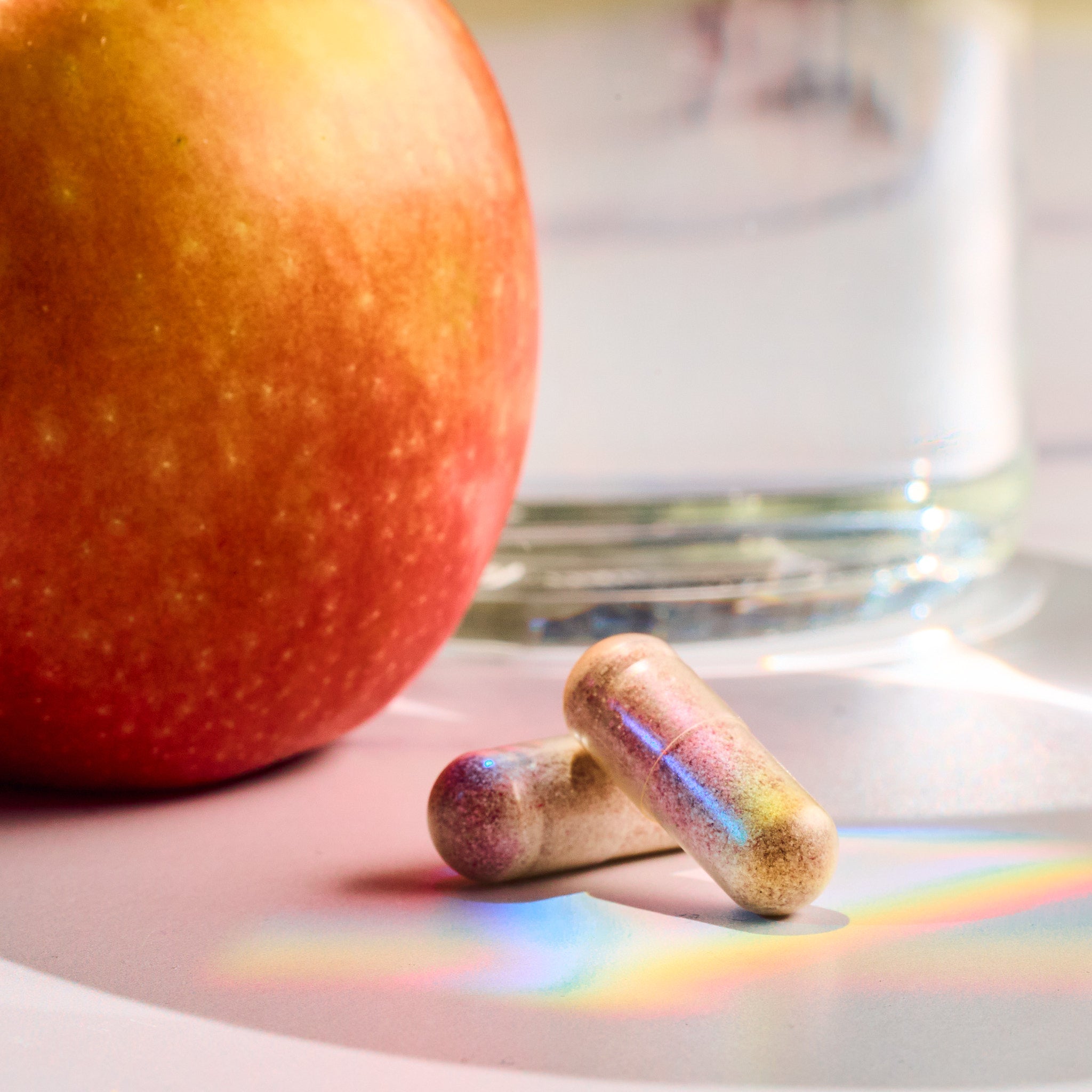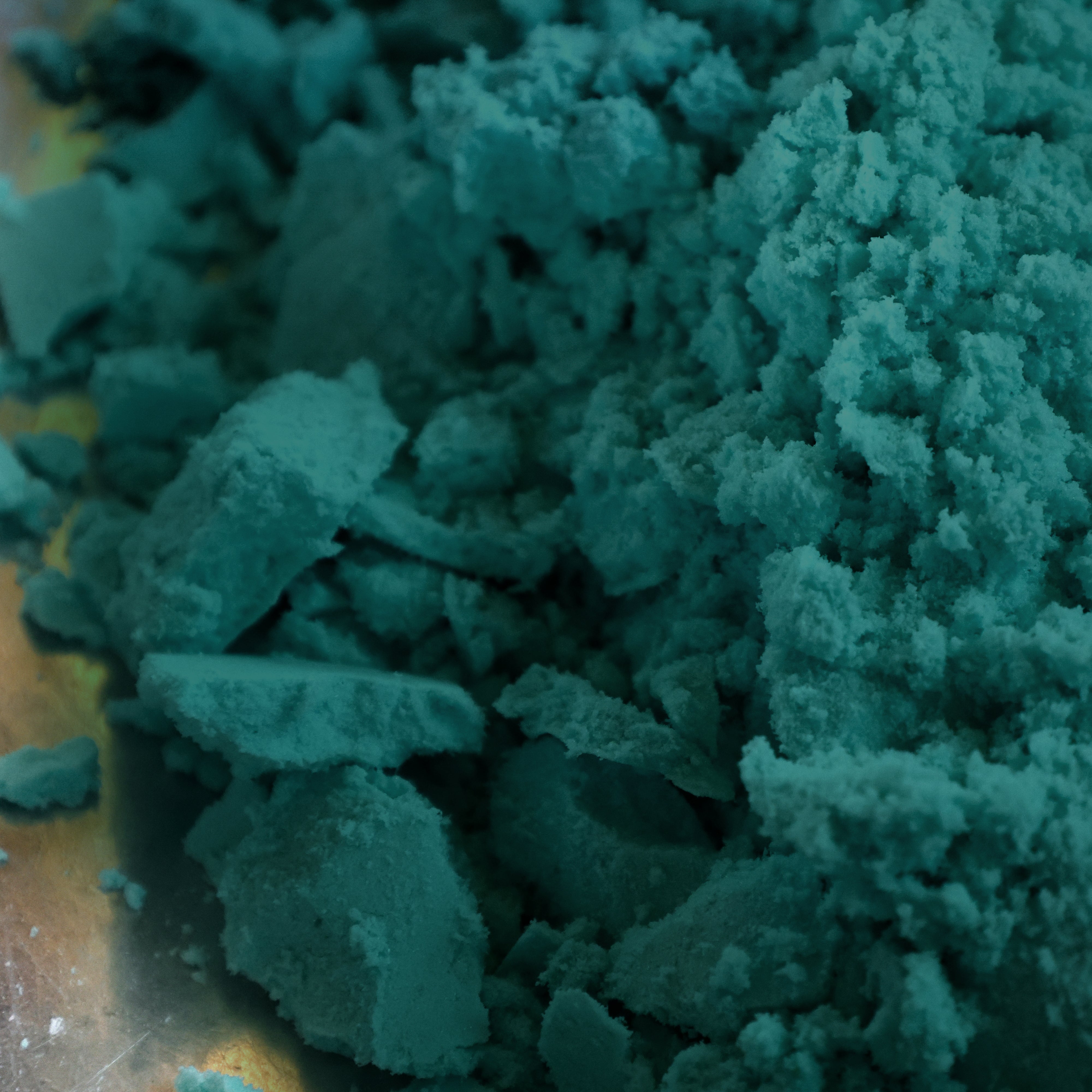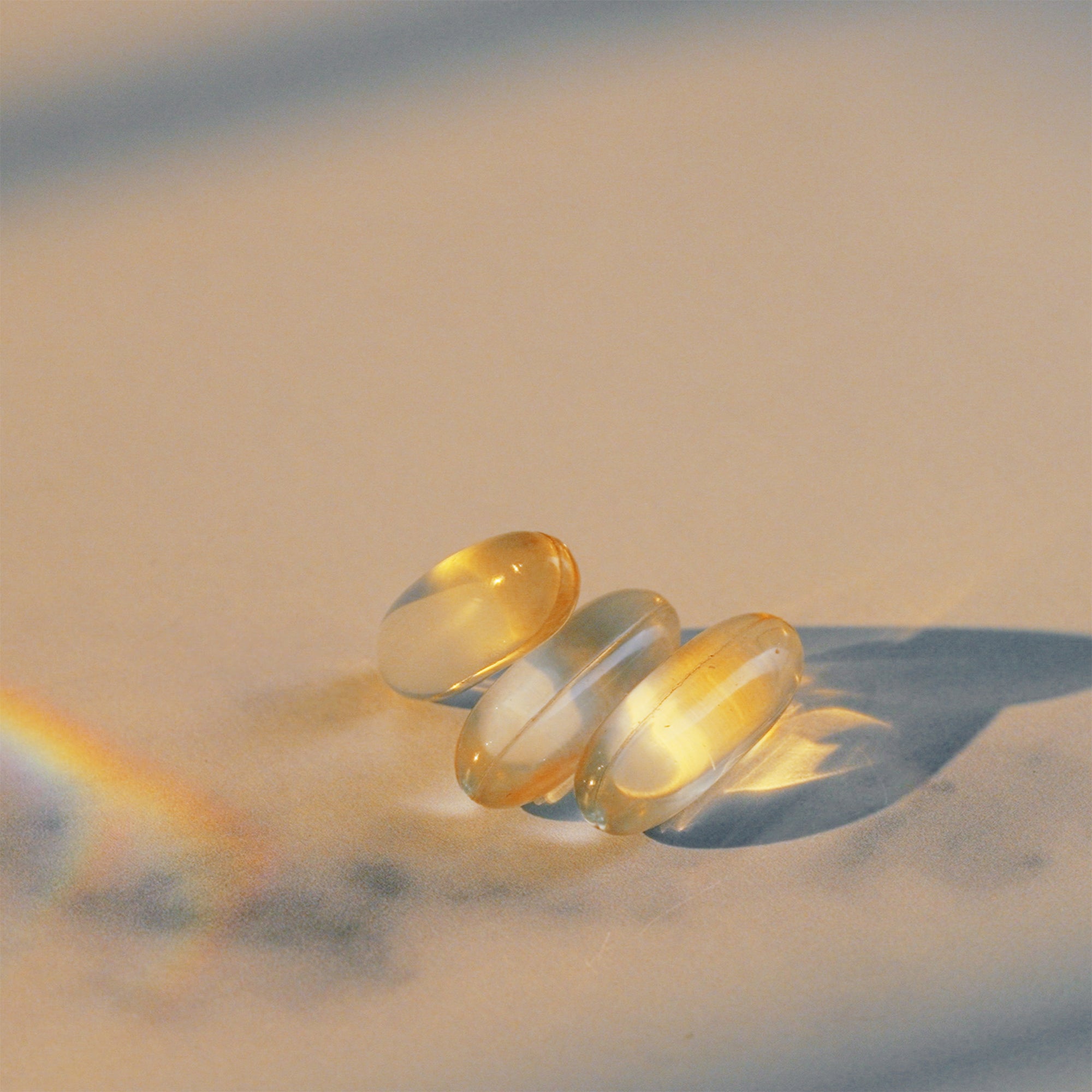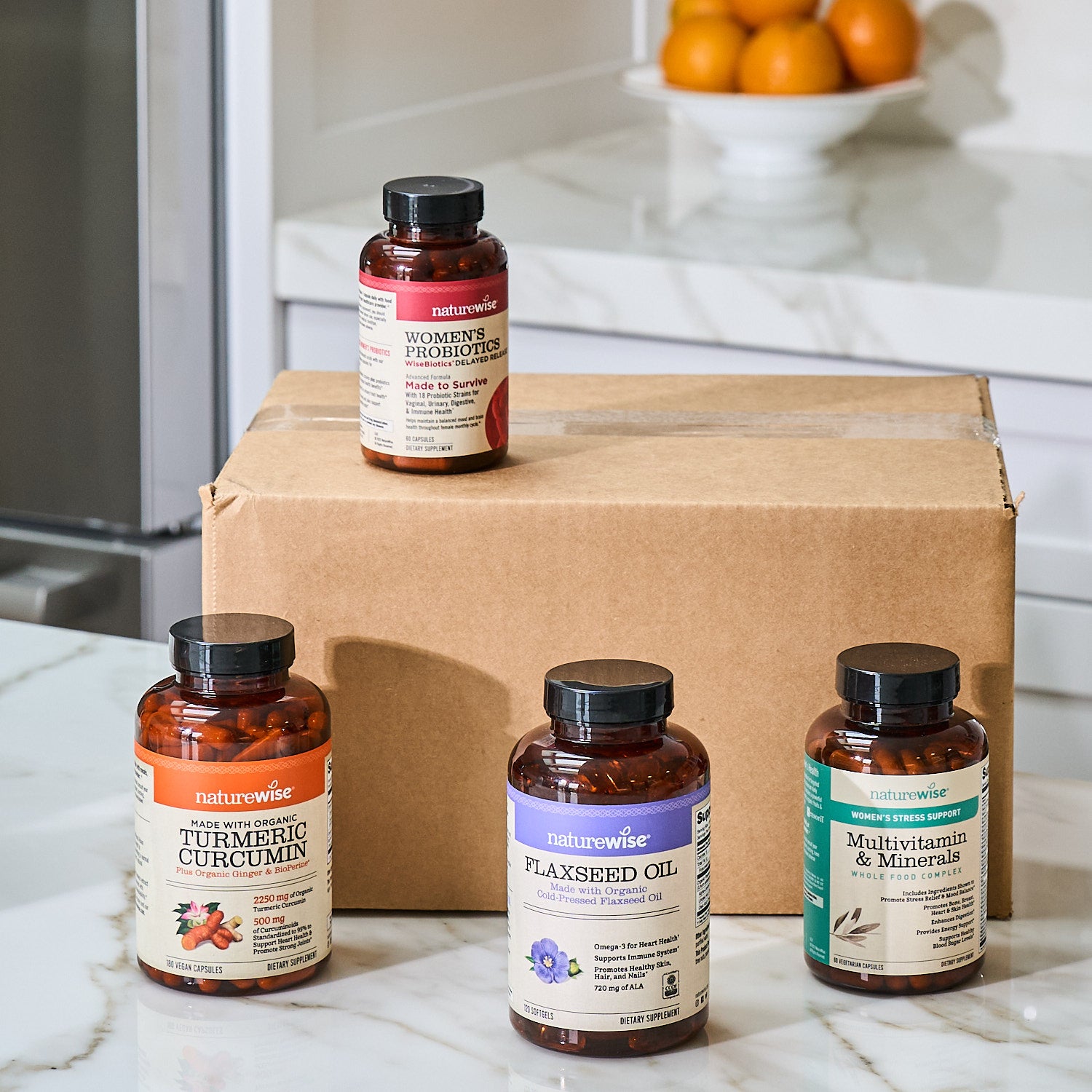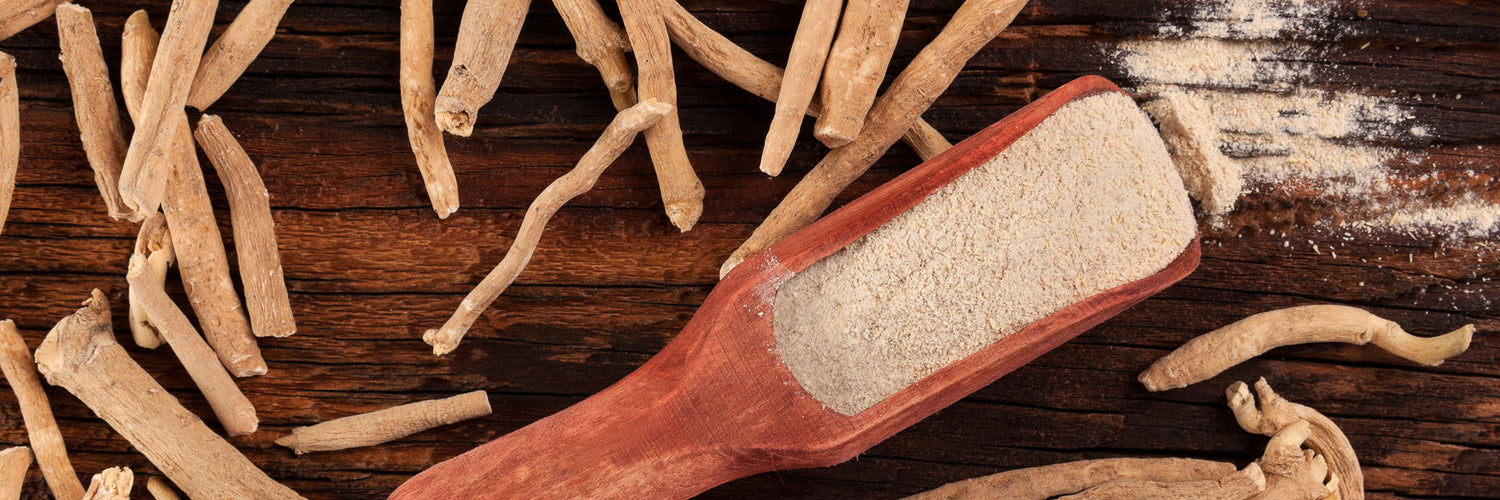What is Ashwagandha?
Ashwagandha (Withania somnifera) is an herb native to India, where it has been used in traditional Ayurvedic medicine as a rejuvenating tonic for thousands of years. The name “ashwagandha” (äsh-wuh-GÄN-duh) means “smell of a horse” — a reference to the animal-like odor of the root, as well as the vigor and virility that the herb is thought to impart.

Commonly known as “winter cherry” in English, ashwagandha is an evergreen shrub with red berries that emerge from papery husks in the fall. But it is the long, tuberous roots that are traditionally harvested in the winter, dried, and ground into a powder for medicine. Ashwagandha root powder is still commonly used in herbal medicine today, though many supplements now use a more concentrated ashwagandha extract instead.
Ashwagandha has also been called “Indian ginseng,” because its role and purpose in Ayurveda is similar to that of ginseng in traditional Chinese medicine. Although it is not botanically related to ginseng, the active phytochemicals in the roots of the plants are structurally similar.1 Both herbs are adaptogens traditionally used to alleviate stress and fatigue and promote energy and resilience.
Today, the ancient ashwagandha herb is experiencing a modern resurgence, as current scientific research supports a growing list of ashwagandha health benefits.2 By minimizing the negative effects of stress on the body,3 4 ashwagandha offers a wide range of benefits for mental health, sexual health, cognitive health, athletic performance, immunity, healthy aging, and more.
What Are Adaptogens?
Ashwagandha belongs to a unique class of medicinal herbs known as adaptogens. Adaptogenic herbs support many aspects of physical and mental health by promoting a healthy resilience to stress.5 They help the body to cope better with physical and psychological stressors in order to conserve energy, improve performance, and resist damage under stressful conditions.6

Stress comes in many different forms, including physical or mental exertion, lack of sleep or proper nutrition, exposure to harsh environmental conditions, and psychological pressures. Any of these challenges can trigger the body’s “fight-or-flight” response, causing it to divert its energy into achieving a state of survival readiness.
The stress response sets off a series of reactions in the nervous system, endocrine system, cardiovascular system, and immune system that prepare the body to cope with an immediate threat. But the body is not designed to maintain this state long-term. Persistent stress can impair the body’s ability to return to a state of balance, resulting in a state of chronic stress.
Too much stress can negatively impact mood, sleep, cognitive function, energy, libido, tension, blood pressure, blood sugar, and immunity, and eventually cause serious damage to cardiovascular, reproductive, and mental health. According to WebMD, stress-related health problems affect 43% of all adults and prompt 75-90% of all doctor visits.
Adaptogens help protect against the negative effects of stress on health by increasing the body’s tolerance to stress. Unlike other medicinal herbs that work by provoking a specific response in the body, adaptogenic herbs regulate multiple physiological processes at once to help bring the stressed out body into a state of balance, or homeostasis.
Adaptogens have been shown to influence key mediators of the stress response associated with the HPA axis (hypothalamic-pituitary-adrenal axis),7 which regulates mood and behavior, sexuality, immunity, digestion, and energy expenditure, among other processes. They calm hyperactive systems and strengthen weaker systems to produce an overall stabilizing effect.
This multi-directional influence allows adaptogens to adjust their effects according to the needs of the body, and explains how they can be both relaxing and energizing. Adaptogens increase mental and physical work capacity under conditions of stress and fatigue8 — without the subsequent decrease in work capacity that typically follows stimulants.9
While stimulants or sedatives provide an immediate, short-term energizing or calming effect, the benefits of adaptogens are cumulative and long-term. Over time, with regular use, adaptogens help to optimize mental and physical function by buffering the impact of stress effects on the body, reducing strain, and improving energy efficiency.
With their broad yet non-specific spectrum of action, adaptogens fit uneasily into the modern paradigm of symptom-focused medicine. But these plants have long been a part of traditional holistic medicine systems, where they have been valued as general health tonics, rejuvenators, and life-extenders for thousands of years.
Today, increased levels of stress and burnout among the population, combined with a growing interest in natural health methods, are prompting a renewed interest in adaptogens and adaptogen supplements. Some of the most well-known and well-studied adaptogenic herbs include Ashwagandha, Asian Ginseng, American Ginseng, Rhodiola, Astragalus, Holy Basil, Eleuthero, Schisandra, & Maca.
Ashwagandha Benefits
Ashwagandha is best known today as one of the best natural remedies for stress. Though many think of stress relief as primarily a mental health benefit, it actually has broad health implications. Stress influences many areas of health, from reproductive health to heart health and more, and research suggests that the ashwagandha herb can benefit them all. Here are the science-backed health benefits of ashwagandha:
Ashwagandha for Stress Relief
Cortisol, the “stress hormone” secreted by the adrenals as part of the body’s stress response, is often measured as a physiological indicator of stress. Prolonged high levels of cortisol in the bloodstream are associated with chronic stress and linked with problems for brain health, heart health, hormonal health, immune health, reproductive health, and more.

Ashwagandha has been clinically shown to reduce cortisol levels by as much as 27.9% to 30.5%.10 11 These same studies also showed a substantial reduction in psychological stress as measured by typical mood, cognitive, and behavioral symptoms such as sleeplessness, inability to concentrate, feelings of dread, and social dysfunction. This is strong evidence supporting the use of ashwagandha for sleep, focus, mood support, and other natural stress relief benefits.
Stress management has physical benefits as well. In one study, ashwagandha was shown to reduce mental stress along with measurable cardiovascular effects, including a decrease in blood pressure.12 Another study showed that ashwagandha can reduce stress-induced emotional eating behavior, with a resulting decrease in body weight.13 This supports the use of ashwagandha for weight loss in the context of stress-related weight problems.
Animal research has shown that ashwagandha may help prevent some of the adverse symptoms of chronic stress,14 15 including stress-induced immunosuppression, inhibited sexual activity, and poor learning retention. Ashwagandha has also been shown in animals to promote GABA-like activity in the brain,16 which can calm worrying thoughts and improve mood and sleep.
Ashwagandha Brain Benefits
The stress response reduces activity in the prefrontal cortex, the brain’s executive center in charge of problem solving, learning, concentration, and emotional control. Excessive stress can eventually impair the structure and function of the brain and increase risk of developing mental or neurodegenerative disorders.

Traditionally known as a medhya rasayana, or nootropic herb, ashwagandha has long been used to enhance brain function and protect cognitive health. Research shows that by dialing down the stress response, ashwagandha can help prevent mental burnout, promote optimal brain functioning, and may even help protect long-term brain health.
Two clinical studies have shown that ashwagandha can improve cognitive function in both healthy adults17 and those with mild cognitive impairment.18 Subjects saw improvements in memory, focus, information processing speed, and executive function, or the ability to manage one’s own behavior to achieve a planned goal.
Preliminary research in animal models suggests that ashwagandha, or its active constituents, may also have neuroprotective19 20 21 and even neuroregenerative22 23 effects, with the potential for reducing cognitive decline symptoms associated with stress and aging.
Ashwagandha for Sexuality & Fertility
Chronic stress triggers hormonal changes along the HPA axis that often lead to a drop in sex drive, as well as fertility. Ashwagandha’s ability to reduce stress and promote hormonal balance can help mitigate these effects. Ashwagandha has a long history of traditional use for sexual and reproductive health, and research seems to back this up.

Increased virility tops the list of traditional ashwagandha benefits for men, and there is growing scientific support for this. A number of clinical studies have shown that ashwagandha can significantly improve semen quality, sperm count, and sperm motility in infertile men by increasing testosterone and reducing oxidative and psychological stress.24 25 One study even resulted in pregnancy for 14% of the subjects’ partners.26
As one of the best adaptogenic herbs for hormone balance, ashwagandha has excellent potential to help regulate female sexual health as well. Though less research has been done on the sexual health benefits of ashwagandha for women, the results so far are just as promising. In one recent clinical study, ashwagandha significantly improved sexual response and satisfaction and increased the number of successful sexual encounters for its female subjects.27
Benefits of Ashwagandha for Athletes
Athletic activity is a form of physical stress. It puts strain on the heart, muscles, and energy reserves, raises cortisol levels in the blood, and increases oxidative stress at the cellular level. How well the body adapts to and recovers from this stress is a key factor in physical fitness and athletic performance, as well as avoiding various health risks.

Many athletes look to stimulants for a quick boost of energy, but the effect is temporary and followed by energy depletion, often prompting a cycle of dependency. Adaptogens like ashwagandha, on the other hand, promote long-lasting energy and resilience without negative side effects by increasing exercise tolerance and reducing physical stress.
Ashwagandha has been clinically studied in healthy, athletic adults and shown to enhance cardiorespiratory endurance,28 29 leading to better physical performance with less fatigue.30 Ashwagandha is thought to enhance work capacity by increasing blood oxygenation31 and improving energy metabolism in the mitochondria.32
Men in a resistance training program who take ashwagandha have shown significant improvements in muscle strength and recovery, accompanied by an increase in muscle size and a decrease in body fat.33 34 These results are attributed to ashwagandha’s ability to lower cortisol and oxidative stress, both of which can decrease muscle mass.
Ashwagandha has also been shown to help reduce joint discomfort35, an important health factor for athletes. This is also likely due to a reduction in oxidative stress, which can trigger an inflammatory response.
Ashwagandha Thyroid Health Benefits
The body’s stress response slows down metabolism as part of its survival mechanism. One of the ways it does this is by suppressing thyroid function. Increased levels of cortisol, blood sugar, and cytokines triggered by stress can all have a negative influence on thyroid hormone metabolism.

Research suggests that ashwagandha can help turn this trend around. In a recent clinical study, ashwagandha had a significant normalizing influence on thyroid hormones in patients with subclinical hypothyroidism.36 These results were attributed to ashwagandha’s stress-lowering, hormone-regulating activity.
Because thyroid hormones can influence mood, thyroid health is also linked with mental health,37 and it is common for thyroid hormone levels to be measured as part of the assessment and monitoring of mood disorders.
In one interesting example, thyroid function was measured as part of a study on ashwagandha’s effects on cognitive function in bipolar patients.38 Of the patients with abnormal thyroid function, those who took ashwagandha saw their thyroid hormone levels improve, while those in the placebo group saw their thyroid abnormality worsen.39
Although thyroid health was not the focus of the study, these results suggest that ashwagandha has potential for improving thyroid health in patients with mood disorders, and that this warrants more focused study.
Ashwagandha Heart Health Benefits
Stress has an immediate impact on the cardiovascular system: it increases the speed and strength of heart contractions, dilates the blood vessels, and elevates blood pressure. When stress is prolonged, these effects begin to take a toll on the body and can increase risk of heart health problems.

Stress is linked with hypertension, high cholesterol, and endothelial dysfunction — an impaired functioning of the blood vessel lining that regulates vascular tone (contraction and dilation). These are all reversible conditions that are considered early predictors of more serious cardiovascular events.
Studies on the stress-reducing effects of ashwagandha have shown significant corresponding reductions in cholesterol40 and blood pressure41 for healthy individuals. Ashwagandha has also been shown to reduce diastolic blood pressure in patients with stress-oriented hypertension,42 and to significantly improve endothelial function in patients with type 2 diabetes.43 44
Ashwagandha for Healthy Aging
In ancient Ayurveda, ashwagandha is known as a rasayana — literally, an herb that “destroys old age and disease.” It is thought to preserve youthful health and vitality by strengthening the body’s resistance to stressors, boosting immunity, and supporting the body’s ability to heal and restore itself.

When it comes to studying anti-aging effects in humans, there are significant research limitations. There are no universally accurate biomarkers of age other than lifespan, and a controlled longitudinal study that could measure this in humans would be impractical.
Anti-aging research is currently limited to three kinds of studies: animal studies that measure lifespan, in vitro studies that measure various cellular biomarkers associated with aging, and human studies that measure various markers of physical and mental function. By all of these measurements, ashwagandha shows significant anti-aging potential.
One established model for studying life-extension uses C. elegans, a type of worm discovered to have mutant variants that can live twice as long.45 Mechanisms for longevity that have been identified in C. elegans have also been found in mice and humans. Ashwagandha has been clinically shown to extend the lifespan of C. elegans by about 20%.46
In another study, one of the primary active compounds in ashwagandha, withaferin A, was shown to significantly reduce neurodegenerative symptoms in mice, with a corresponding lifespan extension of about 5%.47 It did this by activating a cellular protein quality-control network known as proteostasis, the loss of which is considered a biomarker of aging.48 49
Another cellular process strongly associated with healthy aging is telemorase activity, a process that extends the life and function of cells by protecting their ability to successfully self-replicate. An in vitro clinical study using the HeLa human cell culture model showed that ashwagandha can increase telemorase activity by up to 45%.50
There are currently two FDA-approved drugs, rapamycin and metformin, that have shown anti-aging properties beyond their current clinical applications — although neither has been approved for off-label use due to significant adverse effects. This has led researchers to search for natural compounds that might exhibit the same benefits, without the side effects.
Once recent study used data from the LINCS project — an AI system that tracks how cells respond to various stressors — to map the cellular-pathway signatures of rapamycin and metformin and then screen over 800 natural compounds for matches. Ashwagandha’s withaferin A topped the list as the only compound to score a close match with both.51
Many researchers believe that healthy aging is best measured not by a single biomarker, but by a panel of multiple biomarkers. One proposed panel52 identifies five domains of function that tend to degenerate with age — physiological function, physical capability, cognitive function, endocrine function, and immune function — each with measurable subdomain markers.
As already shown, ashwagandha has clinically demonstrated benefits in all of these domains. It supports healthy cardiovascular function,53 54 a subdomain of physiological function; improves muscle strength,55 a marker of physical capability; and enhances cognitive function56 by three key markers: memory, mental processing speed, and executive function.
We’ve also seen that ashwagandha supports thyroid health,57 sexual and reproductive health,58 59 and a healthy stress response with HPA-axis biomarkers60 61 — all measurable indicators of healthy endocrine function. Several animal and in vitro studies also support ashwagandha’s immune-stimulating benefits.62 63
Although most of these studies were not specifically conducted on aging adults, they do show that ashwagandha has the potential to reverse negative trends in all major functional domains that degenerate with age. Ashwagandha does have demonstrated benefits specifically for age-related cognitive impairment.
Biologically Active Constituents
Ashwagandha has a complex phytochemical makeup with a diverse set of bioactive constituents, including alkaloids, steroidal lactones, saponins, flavonoids, sitoindosides, and acylsterylglucosides. The predominant constituents, and the most researched, are called withanolides. These withanolides are considered to be the primary active ingredient in ashwagandha.
Withanolides are primarily found in plants from the Solanaceae (nightshade) family, although they bear a resemblance in their structure and action to ginsenosides, the primary active constituents in Asian (Panax) Ginseng. At least 40 different withanolides from the ashwagandha plant have been isolated and studied.

Withanolides are hormone precursors that can convert into human physiological hormones as needed to help rebalance the body.64 They can mimic a hormone’s effect when more of that hormone is needed, or block an overactive hormone by occupying its cell receptor site. This may help explain ashwagandha’s hormone-regulating activity.
A number of particular withanolides have been studied in isolation for their pharmacological activities, which include immunomodulating, antioxidant, antimicrobial, and anti-stress effects, as well as benefits for the liver, joints, brain, and cardiovascular system.65 Many more withanolides and other compounds in ashwagandha have yet to be studied.
The concentration of withanolides in generic ashwagandha averages between 0.2%-0.6%. Ashwagandha extracts, which are more concentrated, are typically standardized to a particular percentage of withanolides as a marker of potency. These extracts vary between 2%-10% withanolides, depending on methods of extraction, parts of the plant used, and other factors.
Withanolides are concentrated in both the roots and leaves of the ashwagandha plant. Traditionally, the roots would most often be used for internal medicine, while the leaves were used topically. Roots are typically harvested in the dormant winter months, when the leaves fade and the plant begins to store up its nutrients and bioactives in the root system for preservation.
Though the ashwagandha leaves are also high in withanolides, their chemical composition is slightly different from the roots. In particular, they include higher levels of withaferin A, a withanolide that is being researched for a number of potential pharmacological benefits, but which is also cytotoxic and unsafe at higher concentrations.
Because of this, most ashwagandha supplements are drawn only from the roots. Any concentrated ashwagandha extracts that use the whole plant should be standardized to ensure that the concentration of withaferin A remains at safe levels (.5% or less), and should have a certificate of analysis to show this.
Ashwagandha Dosage & Safety Concerns
Adaptogens are, by definition, nontoxic herbs that are generally safe in moderate amounts. Ashwagandha has been used safely for thousands of years without any major incidents. However, every body responds differently to herbs, and any herb can cause undesirable side effects, such as nausea or gastrointestinal problems, if taken in excess.
Although there is no medically established recommendation for how to take ashwagandha, the most common recommended dosage is between 500-3000 mg per day. Ashwagandha extracts are more potent than raw ashwagandha powder, so results can be achieved at a lower dose. An herbalist or other health practitioner can recommend a more specific dosage for your personal ashwagandha uses and needs.
Ashwagandha is a member of the Solonaceae family, and should be avoided by those who have a sensitivity to nightshades. Use with caution if you have a hyperthyroid condition, since ashwagandha may increase thyroid hormone levels. As always, you should consult a health practitioner before use if you are pregnant, breastfeeding, or taking any medications. Ashwagandha side effects are most often related to negative interactions with other medicines.
Choosing Your Ashwagandha
Ashwagandha is conveniently available today in a variety of forms, including ashwagandha capsules or tablets, ashwagandha tinctures, raw powder, and a growing number of commercial ashwagandha beverages and foods. Whether you take your ashwagandha as a supplement or as a food or drink, it’s important to remember that its effects are cumulative, so you will need to take it regularly to reap its long-term benefits.

Traditionally, ashwagandha was often taken in milk, and many today are experimenting using the raw powder in drinks and recipes. The ashwagandha herb has a bitter, earthy taste, which can be hard to disguise if it’s used in any significant amount. Commercial ashwagandha drinks often use an extract instead, because much less is needed to deliver an adequate dose.
Foods and beverages that use ashwagandha as a whole herb rather than an extract may only include small amounts, and often the amount will not be listed. If you want to maintain a consistent daily dosage of ashwagandha, it’s best to look for products that list the amount of ashwagandha included, as well as the potency.
The potency and quality of the ashwagandha in different products can vary widely, depending on how the herb is grown and prepared, whether the product is standardized, and what quality controls are in place. When the label lists only generic, non-standardized ashwagandha with an unknown potency, it’s hard to know exactly what you’re getting.
Here are some things to consider when choosing your ashwagandha to ensure that you are getting the best quality product:
Organic Certification
Organically grown plants are considered safer and healthier because they are free of toxic residue from chemical pesticides and fertilizers, as well as artificial additives, preservatives, and GMOs. Some studies show that they also retain more of their nutrients and antioxidants. Many also choose to buy organic because organic farming methods are better for the environment.

Whether or not you prefer to eat organic foods, there are good reasons to look for organic certification for your herbal medicines. While it’s a myth that supplements aren’t regulated by the FDA, it is true that quality control standards vary from brand to brand. Organic certification adds an extra level of regulatory oversight and quality assurance to help put your mind at ease.
Organic certification requires rigorous third party documentation, inspection, and testing to ensure that strict guidelines are followed for how ingredients are sourced, grown, harvested, stored, transported, and sold. While many of the best supplement brands have similar quality controls in place to ensure the purity and potency of their products, many other brands do not.
If you are buying generic ashwagandha from an unknown brand, organic certification is an important indicator of quality and safety. Otherwise, look for a product that uses a branded ashwagandha extract, or buy from a trusted supplement brand that has rigorous quality controls in place, such as third party-certified facilities and lab testing for purity and authenticity.
Whole Herb vs Standardized Extracts
Many ashwagandha products on the market use a simple, whole herb preparation in which the plant (usually the root) is either dried and ground or steeped in alcohol to make a tincture. This is consistent with traditional herbal practices, and there is comfort in the knowledge that ashwagandha has been used this way safely and productively for thousands of years.

Whole herb preparations contain the full complexity of the plant with all of its known and unknown bioactives, in unknown concentrations. In general, whole herb medicines are low in potency, requiring higher doses to achieve results. They also have a limited shelf life, losing potency steadily as soon as the herbs are picked.
The trouble with whole herb medicines, from a science perspective, is that they lack controls to ensure a consistent product with consistent effects. The potency and chemical makeup of the herb is highly variable, depending on the regional variety of the plant, geographical and soil conditions, time of harvest, processing methods, and many other factors.
When herbal medicines aren’t standardized, their potency and chemical profile remains a question mark. Not only is it not declared on the label, it may vary from bottle to bottle and even from dose to dose. This makes it difficult to determine the right dosage, maintain it consistently or adjust it as needed, or even to accurately evaluate how the herb is working for you.
A medicine with an inconsistent chemical profile is also a poor candidate for scientific research, which is why whole herb medicines generally lack clinical studies to validate their effectiveness. The strong body of clinical research supporting ashwagandha is based almost entirely on the study of standardized ashwagandha extracts, not the whole herb.
Standardized herbal extracts actually originated for the purposes of scientific research. In order to study how an herb works, scientists needed to ensure that the chemical profile of the herb remained consistent from batch to batch. So they developed ways to extract the plant’s bioactive compounds and create a standardized herbal concentrate.
Standardized extracts are generally more potent than the whole herb — in the case of ashwagandha, about 10 times more potent — and will retain that potency for years. The potency, usually measured as concentration of withanolides, will be displayed on the label and will be consistent with each dose, allowing you to control your dosage precisely.
Types of Extracts
Not all herbal extracts are standardized. When a label lists an ashwagandha extract without the percentage of withanolides, its potency and chemical profile is still unknown and variable. If an ashwagandha extract is not standardized, make sure it is drawn from the roots only. Extracts that include the leaves need to be standardized to ensure a safe concentration of withaferin A.

Standardized herbal extracts will list their potency on the label. Many of these extracts achieve higher potency by preferentially favoring a particular bioactive compound. This would include ashwagandha extracts that are standardized to deliver a disproportionately high concentration of active withanolides, compared to the plant’s other compounds.
A full-spectrum extract, on the other hand, is designed to maintain the full complexity of the plant’s natural chemical makeup. Key bioactives, such as withanolides, are measured in this case as markers for standardization, and to indicate the overall potency of the extract, but may or may not be in exceptionally high concentrations.
The best ashwagandha extracts we’ve found deliver the best of both worlds: they are standardized, full-spectrum extracts that are also exceptionally potent, as measured by the concentration of active withanolides. These are usually branded extracts that have perfected their own proprietary extraction methods in order to achieve this level of quality.
Branded Extracts
Branded extracts have some significant advantages over generic extracts. To earn their patent, branded ingredients must offer a unique benefit, whether it’s exceptional potency, better bioavailability, or a unique delivery method. More importantly, they must have solid clinical research to prove that they work.
This means that branded extracts, unlike most herbal supplements, are submitted to thorough clinical trials and proven to be safe and effective before they hit the market. These brands can then make scientifically verified health claims about their extracts, including the specific dosage needed to achieve results.
Although it is common (and legal) for companies to market generic ingredients using “borrowed science” from studies conducted on branded ingredients, this does not mean that they are true equivalents. An untested generic extract can’t be assumed to have the same clinical effects as a branded extract with an exceptional potency or other unique attributes.
Patent protection also allows brands to be more transparent about how their extracts are produced. This makes it much easier for the discerning consumer to find information about the company’s agricultural practices, extraction methods, and other processes that influence the quality of their extract.
Best Ashwagandha Extracts
When it comes to quality and efficacy, two branded ashwagandha extracts stand far above the rest: KSM-66 and Sensoril. These are both standardized, high potency, full-spectrum, certified organic extracts with a long list of verified health benefits backed by clinical studies. Both can be found in a number of ashwagandha supplements, as well as in some commercial ashwagandha beverages.

KSM-66 was developed to provide a highly concentrated, standardized ashwagandha root extract that maintains the natural balance of chemical constituents found in the whole root. Standardized to 5% withanolides, it is the highest potency ashwagandha extract on the market drawn only from the root.
Developed over 14 years, the proprietary extraction process for KSM-66 combines traditional herbal knowledge with modern science to retain all the natural components of the raw root at a higher potency. The extraction process is based on “Green Chemistry” principles and does not use alcohol or synthetic solvents.
Part of the unique extraction process for KSM-66 involves pre-treating the ashwagandha roots in milk, a practice that is consistent with traditional Ayurvedic preparations of the herb. This does leave traces of milk in the extract; however, a version of KSM-66 without the milk pre-treatment is also available for vegans.
KSM-66 is produced with tight vertical integration, helping to ensure quality control from seed to sale. The company has its own certified organic, sustainably-operated farms, production facilities, and testing laboratories, each with third party certifications to verify that they meet the highest standards of quality and safety.
Based in Rajasthan, India, where the climate is ideal for growing ashwagandha, the company that produces KSM-66 offers stable employment to many of the local villagers, including many women, and supports the community by investing in regional schools, medical facilities, community centers and parks.
KSM-66 ashwagandha has been tested and evaluated in 13 “gold standard” clinical trials following randomized, double-blind, placebo-controlled designs. The results of 10 published clinical studies show that KSM-66 has benefits for stress, cognitive function, sexual health, cardiorespiratory endurance, muscle strength, thyroid function, healthy aging, and more.
The most common dosage used for these human clinical trials was 600 mg per day. To achieve the results shown in the studies, look for an ashwagandha product that includes 600 mg of KSM-66 per serving, or 300 mg per serving with two doses per day.
Clinical Studies:
- KSM-66 for Stress
- KSM-66 for Stress & Weight Management
- KSM-66 for Memory & Cognitive Function
- KSM-66 for Male Sexual Health
- KSM-66 for Female Sexual Health
- KSM-66 for Cardiorespiratory Endurance
- KSM-66 for Muscle Strength & Recovery
- KSM-66 for Thyroid Function
- KSM-66 for Life Extension
- KSM-66 for Telomerase Activity
Products that include KSM-66:
(Supplements with subclinical or undisclosed amounts of KSM-66 are not included)
Supplements with 600+ mg KSM-66 per serving:
- NatureWise Ashwagandha for Stress
- NatureWise Ashwagandha for Endurance
- Daily Nutra KSM-66 Ashwagandha
- Daily Nutra Herbal T
- Sky Nutritionals Ashwagandha
- Purity Products Vital Rejuvenator
- LiveWell Labs ZenWell
- Barlowe’s Herbal Extracts KSM-66 Ashwagandha
- Dr. David Williams Clinical Grade Ashwagandha
- Claridream Peace
- Nugenix Maxx Testosterone
- Weider Prime Testosterone Support for Men (675 mg)
- Fresh Nutrition KSM-66 Ashwagandha (700 mg)
- Vitamonk AshwaTrax (700 mg)
- The Genius Brand Genius Test (1000 mg)
- Fresh Healthcare KSM-66 Premium Ashwagandha (1200 mg)
Supplements with 300+ mg KSM-66 per serving:
- NutriGold Ashwagandha Gold
- Nootropics Depot KSM-66 Ashwagandha
- Mt. Angel Vitamins Fabulously Female & Maximum Male
- Mt. Angel Vitamins Women’s Multi & Men’s Multi
- Mt. Angel Vitamins Women’s 50+ & Men’s 50+
- Irwin Naturals Extra Strength Ashwagandha
- Jarrow Formulas Ashwagandha
- Vitamonk TestoTrax
- True Veda Organic Ashwagandha
- Terra Origin Inner Balance
- Be Herbal Full Spectrum Ashwagandha
- Primal One Best Mood
- Team Six Alpha Muscle XT
- Nutrex Research Vitadapt
- VitaPrima Mind Body Healer
- ZenWise Keto Fat Burner
- Dr. Vim’s Yinergy & Vigor
- Bioclinic Naturals CortAlign
- Jiva Botanicals Ashwagandha (350 mg)
- ProHealth Optimized Ashwagandha (400 mg)
- Truth Nutra Testro-X (400 mg)
- Health Through Nutrition Ashwagandha (500 mg)
- Nature’s Velvet KSM-66 Ashwagandha (500 mg)
- AlphaWolf Nutrition Force X7 (500 mg)
Drinks with KSM-66:
- Spice Pharm Golden Goddess Chocolate Elixir
- Spice Pharm Golden Goddess Turmeric Chai Elixir
- Rebbl Ashwagandha Chai & Dark Chocolate
- GNC Earth Genius Calming TonIQ (300 mg)
- Anastasis LAX & Konnect Tonics (300 mg)
Standardized to 10% withanolides, Sensoril is by far the most potent ashwagandha extract available. It achieves this potency by extracting bioactive compounds from both the root and the leaves. The full-spectrum extract is standardized to three compound markers, giving it a unique and very specific chemical profile.
Sensoril’s chemical profile ensures a high percentage of withanolides (10%) along with a safe, low percentage of withaferin A (.5%). The extract is also standardized to 32% oligosaccharides as the third marker. Oligosaccharides are a type of complex carbohydrate that support cellular functioning and provide soluble fiber.
Sensoril is available as both a USDA Certified Organic extract and a conventional extract. The conventional ashwagandha is sourced from the wild in central India, while the organic ashwagandha is sustainably sourced from certified organic farms in India, benefiting local farmers.
Sensoril is prepared using a patented, water-based extraction process with no chemical solvents. It has been thoroughly tested for safety and efficacy in multiple randomized, double-blind, placebo-controlled human clinical trials, and shows benefits for stress, heart health, joint health, muscle strength, cognitive performance, and more.
Sensoril provides different benefits depending on the dosage. Some studies showed positive results with doses as low as 125 mg per day, while other studies achieved success at doses of 1000 mg per day. Be sure to take the correct dose of Sensoril ashwagandha to achieve the specific results you want.
Clinical results for stress reduction, with improvements in mood, sleep, and focus, were achieved at doses of 125 mg, 250 mg, and 500 mg per day, increasing in a dose-dependent manner. Stress-induced cardiovascular effects, such as high blood pressure, were reduced at a dose of 1000 mg per day.
Knee joint comfort was improved with a 125 mg dose, and significantly more improved with a 250 mg dose. Athletic men saw their muscle strength increase with a dose of 500 mg per day. Improvements in endothelial function were achieved at doses of 500-1000 mg per day, while cognitive function was improved with a dose of 1000 mg per day.
Clinical Studies:
- Sensoril for Stress
- Sensoril for Cognitive Function
- Sensoril for Mental Stress & Heart Health
- Sensoril for Cognitive & Psychomotor Performance
- Sensoril for Endothelial Function
- Sensoril for Joint Comfort
- Sensoril for Strength Training Adaptation
Products that include Sensoril:
(Supplements with subclinical or undisclosed amounts of Sensoril are not included)
Supplements with 250+ mg Sensoril per serving:
- NatureWise Men’s Multivitamin with Stress Support
- NatureWise Women’s Multivitamin with Stress Support
- Moon Juice SuperYou
- LCR Health QL-5 Energy Activator
- Natural Factors Ashwagandha
- Natural Factors Serenity Formula
- Avon Espira Calm
- Princeton Nutrients VitaLift
- Perricone MD Sleep Booster
- Nature City True Recall
- Country Life Stress Shield Nighttime
- Sports Performance Labs Yoga Fuel
- Moon Juice Ashwagandha
- Stop Aging Now Cortisol Control (255 mg)
- Life Extension Triple Action Thyroid (500 mg)
Supplements with 125+ mg Sensoril per serving:
- Orb Women’s Multi + Fish Oil
- Orb Men’s Multi + Fish Oil
- Irwin Naturals Power to Sleep PM
- Neogenics NeoBrain
- Neogenics FPS Energy
- Life Extension Optimized Ashwagandha
- Purica Complete 360
- MRM Stress Adaptogens
- The Genius Brand Genius Burn
- Life Extension Cognitex Elite Pregnenolone
- Clean Machine Cell Block 80
- Myokem Thyrovate
- Sparta Nutrition Inferno Fat Burner
- Blue Star Nutraceuticals Vitality
- Nootropics Depot Sensoril Ashwagandha
- ProBioCare Stress Support Probiotic + Ashwagandha
- 3 Brains Serene Mind
- VitaLast Brighter Day
- Lee Swanson Emotional Wellness Pills
- Muscle Pharm Multi-V+
- Nature City TrueOsteo
- Xymogen Cortisolv (150 mg)
- Brain Bean Brain Boost (200 mg)
- Jarrow Formulas GABA Soothe (225 mg)
Drinks & Food Products with Sensoril:
- NatureWise Ashwagandha Energy Drinks (250 mg)
- Vitacost Super Cacao Mandarin Orange (100 mg)
- Fit Brewing Co Fit Brew Cold Brew Coffee
- 8th Wonder Ashwagandha Chai Superfood Tea
- Moon Juice Cosmic Cocoa
- Moon Juice Moon Dusts
- Moon Juice Adaptogenic Protein
- Hum Nutrition Raw Beauty Superfood Powder
- Solar Synergy Sports Drink Packets
Ashwagandha Reviews
How do you compare all the different ashwagandha products on the market? NatureWise founder DavidPaul Doyle gives an industry insider’s perspective on some of the top-selling ashwagandha supplements to help you understand how they are formulated, how they are marketed, and how they really work. Watch 17 ashwagandha reviews covering bestselling brands on the internet and in retail.
Internet-Only Supplement Brands
Many of today’s top-selling ashwagandha supplements are sold only on the internet. These are newer brands that have emerged within the last few years to seize upon the market opportunity of selling supplements on Amazon. They don’t always know a lot about formulating supplements, so they imitate other products, then increase something in the formula to give it a competitive edge.
Physician’s Choice Ashwagandha Review
DavidPaul Doyle reviews Physician’s Choice Ashwagandha and analyzes the Supplement Facts to explain what the formula truly delivers. While many internet-based supplement brands try to compete over dosage, this has little to do with the potency or effectiveness of ashwagandha. The total mg of ashwagandha per dose is less important than the percentage of active withanolides, which will always be low in any generic ashwagandha root powder.
Capsule Count: 90
Serving Size: 3 Capsules
Ashwagandha per Serving: 1950mg
Type of Ashwagandha: Generic Root Powder
Havasu Nutrition Ashwagandha Review
This is a basic ashwagandha formula, simply and elegantly marketed. The fact that it uses standard gelatin capsules instead of vegetarian capsules, and magnesium stearate instead of a cleaner excipient, suggests that this is a generic formula that was purchased by the brand and then relabelled. It offers no unique competitive advantage over other ashwagandha products.
Capsule Count: 90
Serving Size: 2 Capsules
Ashwagandha per Serving: 1000mg
Type of Ashwagandha: Generic Root Powder
NutraHerbals Ashwagandha Review
NutraHerbals markets its ashwagandha as “organically grown,” but the Supplement Facts show that the ashwagandha is not certified organic. It may have been grown according to organic guidelines, but it has not been tested or certified to ensure that it meets organic standards. The brand is competing with real organic ashwagandha products by using a cheaper product that it can offer at a higher dosage, while implying that it is organic.
Capsule Count: 120
Serving Size: 2 Capsules
Ashwagandha per Serving: 1200mg
Type of Ashwagandha: Generic Root Powder
NaturaLife Labs Ashwagandha Review
This product uses a combination of whole ashwagandha root powder and ashwagandha extract. While the extract is probably more potent than the whole root powder, the actual percentage of withanolides is not listed, suggesting that the potency is either unknown or insignificant. Both the whole root powder and the extract are certified organic. However, it’s misleading (and illegal) for the label to state that the product itself is certified organic, since the capsules are not organic.
Capsule Count: 100
Serving Size: 2 Capsules
Ashwagandha per Serving: 1300mg
Type of Ashwagandha: Generic Root Powder and Generic Extract
True Veda Ashwagandha Review
True Veda Ashwagandha is made with one of the highest quality ashwagandha extracts on the market: KSM-66, a high potency, certified organic extract backed by clinical studies. Each capsule only includes 300 mg of KSM-66, which is half the clinical dose, so it’s important to take two capsules per dose. The packaging includes a USDA certified organic logo, which it shouldn’t, since the capsules are not organic. The company is based in the UK, which may have different guidelines.
Capsule Count: 60
Serving Size: 1 Capsule
Ashwagandha per Serving: 300mg
Type of Ashwagandha: KSM-66®
DailyNutra Ashwagandha Review
This is a high quality ashwagandha product with clear and accurate labelling. The formula uses high potency, certified organic KSM-66 ashwagandha extract with a clinical 600 mg dose, together with a branded black pepper extract to boost absorption. This product will probably come at a higher price point, but for good reason: branded extracts invest a lot of money in their unique extraction processes, clean standards, and clinical trials to prove their effectiveness.
Capsule Count: 90
Serving Size: 1 Capsule
Ashwagandha per Serving: 600mg
Type of Ashwagandha: KSM-66®
Fresh Healthcare Ashwagandha Review
Fresh Healthcare Ashwagandha competes with other high quality ashwagandha products using certified organic, high potency KSM-66 ashwagandha and black pepper extract. Although the label claims a whopping 1200 mg dose of KSM-66, this is only because the suggested serving size is two capsules. Each capsule includes 600 mg of KSM-66, which is considered a clinical dose. It’s unclear whether taking twice as much per day would deliver additional benefits.
Capsule Count: 60
Serving Size: 2 Capsules
Ashwagandha per Serving: 1200mg
Type of Ashwagandha: KSM-66®
Retail Supplement Brands
Nutritional supplement brands that are distributed in retail stores are usually well-known, well-established brands. These brands have more exposure than internet-only supplement brands, so they tend to have higher quality control standards and better legal scrutiny. They are also usually larger companies with more vertical integration, allowing them more control over their products. While their formulas aren’t always necessarily better, they are generally more trustworthy.
Gaia Herbs Ashwagandha Review
Gaia Herbs is a well known and highly reputable supplement brand. Vertical integration allows them to grow and prepare their own herbs with a high degree of quality control and transparency. But their ashwagandha formula doesn’t compete well in terms of potency or efficacy. Each dose offers just 350 mg of ashwagandha extract, including 183 mg of a non-standardized certified organic extract and 167 mg of a non-organic extract standardized to just 1.67% withanolides.
Capsule Count: 120
Serving Size: 1 Capsule (2x Daily)
Ashwagandha per Serving: 350mg
Type of Ashwagandha: Generic Root Extract and Standardized Extract (1.67%)
Organic India Ashwagandha Review
Organic India is a vertically integrated company that makes clean, high quality, organic herbal supplements. Because their supplements are made outside of the U.S., they have access to certified organic Pullulan capsules, allowing them to offer an ashwagandha product that is truly and entirely certified organic. However, their ashwagandha formula uses a whole root powder, not a standardized extract, so the potency is not very high.
Capsule Count: 90
Serving Size: 2 Capsules
Ashwagandha per Serving: 800mg
Type of Ashwagandha: Generic Root Powder
Jarrow Formulas Ashwagandha Review
Jarrow Formulas offers a simple but high quality ashwagandha product that uses premium KSM-66 ashwagandha extract by itself. Each serving delivers 300 mg, which is half the clinical dose for KSM-66, so you need to take two capsules per day for the full effect. Jarrow manufactures their supplements with excipients like magnesium stearate and silicon dioxide, which aren’t bad for you, but also aren’t as clean as some other options that are available.
Capsule Count: 120
Serving Size: 1 Capsule
Ashwagandha per Serving: 300mg
Type of Ashwagandha: KSM-66®
Himalaya Ashwagandha Review
Himalaya is a well-established, trustworthy brand with an exceptionally transparent label. Their formula combines three different standardized, organic ashwagandha extracts, clearly listing the total amounts of each along with the percentage of withanolides. Although this formula is more potent than a generic whole root powder, the potency is mostly in the low .2-.5% range. It includes just 10 mg of a high potency extract, which is not enough to make much impact.
Caplet Count: 60
Serving Size: 1 Caplet
Ashwagandha per Serving: 670mg
Type of Ashwagandha: Standardized Root Powder (0.2%), Standardized Root Extract (0.5%), and Standardized Root Extract (8%)
Nature’s Answer Ashwagandha Review
This liquid ashwagandha extract delivers a significant 2000 ml dose, but the potency is still unknown. It is a full-spectrum extract, meaning it is standardized to deliver the plant’s original chemical blueprint, with the same chemical ratios found in the whole herb. This means that the percentage of active withanolides is likely low, as it would be in the whole herb.
Container Size: 2 fl oz (60 ml)
Serving Size: 2 ml (3x daily)
Ashwagandha per Serving: 2000mg
Type of Ashwagandha: Generic Whole Plant Extract
Herb Pharm Ashwagandha Review
Herb Pharm makes high quality, organic, liquid botanical extracts from herbs grown on their own farms. Potency is not their focus, and their products are not tested for it. Their non-standardized ashwagandha extract delivers a 626 mg dose with a 1:4 extraction ratio (one part herb per four parts solvent). This is not a very strong formula, although the purity and quality of the herb is likely to be high.
Container Size: 4 fl oz (120 ml)
Serving Size: 7 ml
Ashwagandha per Serving: 626mg
Type of Ashwagandha: Generic Extract
LifeExtension Ashwagandha Review
Life Extension is a reputable brand that makes high quality formulas. Their ashwagandha supplement uses Sensoril, the highest potency ashwagandha extract available. High potency makes Sensoril effective at a clinical dose as low as 125 mg, which is what this formula contains. Taking more often improves the benefits, so you might want to double your dose. The only thing not to like in this formula is that is uses several different excipients, which seems unnecessary.
Capsule Count: 60
Serving Size: 1 Capsule
Ashwagandha per Serving: 125mg
Type of Ashwagandha: Sensoril®
Pure Encapsulations is a brand that’s marketed for the health practitioner’s channel. Your Naturopathic doctor might have a wall full of supplements from Pure Encapsulations. Although the brand itself has high credibility, this doesn’t mean that their formulas are always top of the line. Their ashwagandha supplement uses a non-branded, non-organic extract standardized to 2.5% withanolides, which is better than most, but only half as potent as KSM-66.
Capsule Count: 120
Serving Size: 1 Capsule
Ashwagandha per Serving: 500mg
Type of Ashwagandha: Standardized Root Powder (2.5%)
Terrasoul Superfoods Ashwagandha Review
TerraSoul Superfoods Ashwagandha is an organic ashwagandha root powder that’s sold as a food instead of a supplement. There are no capsules or excipients, just the raw ingredient, so the whole product can be labelled USDA certified organic and Non-GMO Project Verified. This is a whole root powder, not a standardized extract, so the potency is unknown and likely very low. Ashwagandha also has a bitter taste, which is not ideal for adding to drinks and recipes.
Container Size: 10 oz (280 g)
Serving Size: 1/3 tsp (1 g)
Ashwagandha per Serving: 1g
Type of Ashwagandha: Generic Root Powder
NatureWise Ashwagandha Supplement Line
NatureWise ashwagandha supplements are unique in the marketplace because they are the only formulas targeted toward specific, clinically proven health benefits. DavidPaul Doyle worked closely with KSM-66 to design a line of five ashwagandha supplements, each based on a clinical study conducted with KSM-66. Each formula starts with a 600 mg clinical dose of organic, high potency KSM-66 ashwagandha, then combines it with a specialized herbal blend to enhance the benefits for Stress and Endurance. This whole product line took home the 2018 Nexty Award for Best Condition-Specific Supplements at Expo West, the largest natural products expo in the country.
NatureWise Ashwagandha for Stress
Designed to maximize the stress-reducing benefits of ashwagandha, NatureWise Ashwagandha for Stress combines a clinical dose of organic KSM-66 ashwagandha extract with an additional 700 mg of other natural anti-stress ingredients, including the complementary adaptogen rhodiola, Chinese skullcap, GABA, and L-Theanine.
Capsule Count: 60
Serving Size: 2 Capsules
Ashwagandha per Serving: 600mg
Type of Ashwagandha: KSM-66®
Anti-Stress Blend: 700mg
Buy Now
NatureWise Ashwagandha for Endurance
If you are interested in ashwagandha for its athletic benefits, this product was designed for you. It delivers 600 mg of KSM-66 ashwagandha extract clinically shown to enhance endurance and muscle strength, plus 700 mg of other natural energy and performance enhancers. The blend includes two other adaptogens, Asian ginseng and American ginseng, each standardized for high potency and quality, along with Coenzyme Q10 and a high-caffeine Green Tea Extract.
Capsule Count: 60
Serving Size: 2 Capsules
Ashwagandha per Serving: 600mg
Type of Ashwagandha: KSM-66®
Endurance Blend: 700mg
Buy Now
Ashwagandha Product Reviews Recap
I hope this series of reviews has been helpful in educating you about how supplements are formulated and marketed, and how to read the labels to understand what kind of quality and efficacy they really deliver. When you are choosing an ashwagandha supplement, remember that the dose in mg is less important than the percentage of withanolides. The best potency and quality will come from branded extracts, such as KSM-66 and Sensoril. These are the only ashwagandha extracts backed by clinical studies that prove they support specific health benefits. Look for an ashwagandha supplement that delivers a clinical dose of one of these extracts to target the specific benefit you want.

Buy NatureWise Ashwagandha Supplements Here
Disclaimer: Despite the references provided, the information on this site is intended for educational purposes only. It is not meant to cover all possible precautions, drug interactions, circumstances, or adverse effects. Please refer to a licensed physician for advice and treatment.
View Footnotes
1 Kulkarni SK, Dhir A. Withania somnifera : an Indian ginseng. Prog Neuropsychopharmacol Biol Psychiatry. 2008;32(5):1093-1105.
2 Bone K. Clinical Applications of Ayurvedic and Chinese Herbs. Queensland, Australia: Phytotherapy Press, 1996, 137-41.
3 Provino R. The role of adaptogens in stress management. Aust J Med Herbal. 2010;22:41–9.
4 Singh N, Bhalla M, de Jager P, Gilca M. An Overview on Ashwagandha: A Rasayana (Rejuvenator) of Ayurveda. African Journal of Traditional, Complementary, and Alternative Medicines. 2011;8(5 Suppl):208-213. doi:10.4314/ajtcam.v8i5S.9.
5 Panossian A, Wikman G. Effects of Adaptogens on the Central Nervous System and the Molecular Mechanisms Associated with Their Stress—Protective Activity. Pharmaceuticals. 2010;3(1):188-224. doi:10.3390/ph3010188.
6 Panossian A, Wagner H, 2005. Stimulating effect of adaptogens: an overview with particular reference to their efficacy following single dose administration. Phytother Res, Oct. 19 (10): 819-38
7 Panossian A, Wikman G. Effects of Adaptogens on the Central Nervous System and the Molecular Mechanisms Associated with Their Stress—Protective Activity. Pharmaceuticals. 2010;3(1):188-224.
8 Panossian A., Wikman G. Evidence-based efficacy of adaptogens in fatigue, and molecular mechanisms related to their stress-protective activity. Current Clin.Pharmacol. 2009;4:198–219.
9 European Medicines Agency. Reflection Paper on the Adaptogenic Concept. 2008.
10 Auddy, Biswajit & Hazra, Jayaram & Mitra, Achintya & Abedon, Bruce & Ghosal, Shibnath. (2008). A Standardized Withania Somnifera Extract Significantly Reduces Stress-Related Parameters in Chronically Stressed Humans: A Double-Blind, Randomized, Placebo-Controlled Study. Journal of American Nutraceutical Association. 11. 50-56.
11 Chandrasekhar K, Kapoor J, Anishetty S. A Prospective, Randomized Double-Blind, Placebo-Controlled Study of Safety and Efficacy of a High-Concentration Full-Spectrum Extract of Ashwagandha Root in Reducing Stress and Anxiety in Adults. Indian Journal of Psychological Medicine. 2012;34(3):255-262. doi:10.4103/0253-7176.106022.
12 Pingali U, et al. 2013. Effect of Withania somnifera extract on mental stress induced changes in hemodynamic properties and arterial wave reflections in healthy subjects. Curr TopNutraceutical Res 11(4):151-158
13 Choudhary, D., Bhattacharyya, S., & Joshi, K. (2017). Body Weight Management in Adults Under Chronic Stress Through Treatment With Ashwagandha Root Extract: A Double-Blind, Randomized, Placebo-Controlled Trial. Journal of evidence-based complementary & alternative medicine, 22(1), 96-106.
14 Bhattacharya A, Ghosal S, Bhattacharya SK. Anti-oxidant effect of Withania somnifera glycowithanolides in chronic footshock stress-induced perturbations of oxidative free radical scavenging enzymes and lipid peroxidation in rat frontal cortex and striatum. J Ethnopharmacol. 2001;74:1-6.
15 Bhattarcharya SK, Muruganandam AV. Adaptogenic activity of Withania somnifera: an experimental study using a rat model of chronic stress. Pharmacol Biochem Behav. 2003;75:547-555.
16 Mehta AK, Binkley P, Gandhi SS, Ticku MK. Pharmacological effects of Withania somnifera root extract on GABAA receptor complex Indian J Med Res. 1991;94: 312-15.
17 Pingali U, et al. 2013. Effect of standardized aqueous extract of Withania somnifera on tests of cognitive and psychomotor performance in healthy human participants. Pharmacogn Res 6(1):12-18
18 Choudhary, D., Bhattacharyya, S., & Bose, S. (2017). Efficacy and Safety of Ashwagandha (Withania somnifera (L.) Dunal) Root Extract in Improving Memory and Cognitive Functions. Journal of Dietary Supplements, 1-14. Chicago
19 Prakash, J., Yadav, S.K., Chouhan, S. et al. Neuroprotective role of Withania somnifera root extract in maneb-paraquat induced mouse model of parkinsonism. Neurochem Res (2013) 38: 972.
20 Abhinav Grover, Ashutosh Shandilya, Vibhuti Agrawal, Virendra S. Bisaria & Durai Sundar (2012) Computational Evidence to Inhibition of Human Acetyl Cholinesterase by Withanolide A for Alzheimer Treatment, Journal of Biomolecular Structure and Dynamics, 29:4, 651-662.
21 Jain S, Shukla SD, Sharma K, Bhatnagar M. Neuroprotective effects of Withania somnifera Dunn. in hippocampal sub-regions of female albino rat. Phytother Res. 2001 Sep;15(6):544-8.
22 Kulkarni SK, Sharma A, Verma A, Ticku MK. GABA receptor mediated anticonvulsant action of Withania somnifera root extract. Indian Drugs. 1993;30:305–312.
23 Kuboyama T, Tohda C, Komatsu K. Neuritic regeneration and synaptic reconstruction induced by withanolide A. Br J Pharmacol. 2005 Apr;144(7):961-71.
24 Ambiye, Vijay R. et al. “Clinical Evaluation of the Spermatogenic Activity of the Root Extract of Ashwagandha (Withania Somnifera) in Oligospermic Males: A Pilot Study.” Evidence-based Complementary and Alternative Medicine : eCAM2013 (2013): 571420. PMC. Web. 14 Sept. 2018.
25 Ahmad MK, Mahdi AA, Shukla KK, Islam N, Rajender S, Madhukar D, Shankhwar SN, Ahmad S Fertil Steril. Withania somnifera improves semen quality by regulating reproductive hormone levels and oxidative stress in seminal plasma of infertile males. American Society for Reproductive Medicine. 2010 Aug; 94(3):989-96.
26 Mahdi AA, Shukla KK, Ahmad MK, et al. Withania somnifera Improves Semen Quality in Stress-Related Male Fertility. Evidence-based Complementary and Alternative Medicine : eCAM. 2011;2011:576962.
27 Dongre, S., Langade, D., & Bhattacharyya, S. Efficacy and Safety of Ashwagandha (Withania somnifera) Root Extract in Improving Sexual Function in Women: A Pilot Study. BioMed research international, 2015.
28 Shenoy S, Chaskar U, Sandhu JS, Paadhi MM. Effects of eight-week supplementation of Ashwagandha on cardiorespiratory endurance in elite Indian cyclists. Journal of Ayurveda and Integrative Medicine. 2012;3(4):209-214.
29 Choudhary B, Shetty A, Langade DG. Efficacy of Ashwagandha (Withania somnifera [L.] Dunal) in improving cardiorespiratory endurance in healthy athletic adults. Ayu. 2015;36(1):63-68.
30 Sandhu JS, Shah B, Shenoy S, Chauhan S, Lavekar GS, Padhi MM. Effects of Withania somnifera (Ashwagandha) and Terminalia arjuna (Arjuna) on physical performance and cardiorespiratory endurance in healthy young adults. Int J Ayurveda Res. 2010 Jul; 1(3):144-9.
31 Ziauddin M, Phansalkar N, Patki P, Diwanay S, Patwardhan B. Studies on the immunomodulatory effects of Ashwagandha. J Ethnopharmacol. 1996 Feb; 50(2):69-76.
32 Begum VH, Sadique J. Effect of Withania somnifera on glycosaminoglycan synthesis in carrageenin-induced air pouch granuloma. Biochem Med Metab Biol. 1987 Dec; 38(3):272-7.
33 Ziegenfuss TN, Kedia AW, Sandrock JE, Raub BJ, Kerksick CM, Lopez HL. Effects of an Aqueous Extract of Withania somnifera on Strength Training Adaptations and Recovery: The STAR Trial. Nutrients. 2018;10(11):1807. Published 2018 Nov 20. doi:10.3390/nu10111807
34 Wankhede S, Langade D, Joshi K, Sinha SR, Bhattacharyya S. Examining the effect of Withania somnifera supplementation on muscle strength and recovery: a randomized controlled trial. Journal of the International Society of Sports Nutrition. 2015;12:43.
36 Sharma, A. K., Basu, I., & Singh, S. Efficacy and Safety of Ashwagandha Root Extract in Subclinical Hypothyroid Patients: A Double-Blind, Randomized Placebo-Controlled Trial. The Journal of Alternative and Complementary Medicine. (2017)
37 Victoria Hendrick, Lori Altshuler, Peter Whybrow. Psychoneuroendocrinology of Mood Disorders: The Hypothalamic-Pituitary-Thyroid Axis. Psychiatric Clinics of North America, Volume 21, Issue 2, 1998, Pages 277-292, ISSN 0193-953X.
38 Chengappa KNR, et al. 2013. Randomized placebo-controlled adjunctive study of an extract of Withania somnifera for cognitive dysfunction in bipolar disorder. J Clin Psych 74(11):1076-1083
39 Gannon JM, Forrest PE, Roy Chengappa KN. Subtle changes in thyroid indices during a placebo-controlled study of an extract of Withania somnifera in persons with bipolar disorder. Journal of Ayurveda and Integrative Medicine. 2014;5(4):241-245. doi:10.4103/0975-9476.146566.
40 Auddy B, et al. 2008. A standardized Withania somnifera extract significantly reduces stress-related parameters in chronically stressed humans; A double-blind, randomized, placebo-controlled study. JANA 11:50-56
41 Pingali U, et al. 2013. Effect of Withania somnifera extract on mental stress induced changes in hemodynamic properties and arterial wave reflections in healthy subjects. Curr Top Nutraceutical Res 11(4):151-158
42 Kushwaha, S, et al. 2012. “Effect of Ashwagandha (Withania somnifera) root powder supplementation in treatment of hypertension.” Ethno Med 6, no. 2 (2012): 111-115.
43 Pingali U, et al. 2014. Evaluation of a highly standardized Withania somnifera extract on endothelial dysfunction and biomarkers of oxidative stress in patients with type 2 diabetes mellitus: A randomized, double blind, placebo controlled study. Int J Ayurveda Pharma Res 2(3):22-32
44 Pingali U, et al. 2014. A comparative study to evaluate the effect of highly standardised aqueous extracts of Phyllanthus emblica, Withania somnifera and their combination on endothelial dysfunction and biomarkers in patients with type II diabetes mellitus. Int J Pharm Sci Res 5(7):2687-2697
45 Kenyon C1, Chang J, Gensch E, Rudner A, Tabtiang R. A C. elegans mutant that lives twice as long as wild type. Nature. 1993 Dec 2;366(6454):461-4.
46 Kumar R, Gupta K, Saharia K, Pradhan D, Subramaniam JR. Withania somnifera root extract extends lifespan of Caenorhabditis elegans. Annals of Neurosciences. 2013;20(1):13-16.
47 Patel P, Julien J-P, Kriz J. Early-Stage Treatment with Withaferin A Reduces Levels of Misfolded Superoxide Dismutase 1 and Extends Lifespan in a Mouse Model of Amyotrophic Lateral Sclerosis. Neurotherapeutics. 2015;12(1):217-233. doi:10.1007/s13311-014-0311-0.
48 Taylor RC, Dillin A. Aging as an Event of Proteostasis Collapse. Cold Spring Harbor Perspectives in Biology. 2011;3(5):a004440. doi:10.1101/cshperspect.a004440.
49 Balch WE, Morimoto RI, Dillin A, et al. Adapting proteostasis for disease intervention. Science.2008;319(5865):916-9.
50 Raguraman, V. and Subramaniam, J. (2016) Withania somnifera Root Extract Enhances Telomerase Activity in the Human HeLa Cell Line. Advances in Bioscience and Biotechnology, 7, 199-204. doi: 10.4236/abb.2016.74018.
51 Aliper A, Jellen L, Cortese F, et al. Towards natural mimetics of metformin and rapamycin. Aging (Albany NY). 2017;9(11):2245-2268. doi:10.18632/aging.101319.
52 Lara J, Cooper R, Nissan J, et al. A proposed panel of biomarkers of healthy ageing. BMC Medicine. 2015;13:222. doi:10.1186/s12916-015-0470-9.
53 Pingali U, et al. 2014. Evaluation of a highly standardized Withania somnifera extract on endothelial dysfunction and biomarkers of oxidative stress in patients with type 2 diabetes mellitus: A randomized, double blind, placebo controlled study. Int J Ayurveda Pharma Res 2(3):22-32
54 Choudhary B, Shetty A, Langade DG. Efficacy of Ashwagandha (Withania somnifera [L.] Dunal) in improving cardiorespiratory endurance in healthy athletic adults. Ayu. 2015;36(1):63-68.
55 Wankhede S, Langade D, Joshi K, Sinha SR, Bhattacharyya S. Examining the effect of Withania somnifera supplementation on muscle strength and recovery: a randomized controlled trial. Journal of the International Society of Sports Nutrition. 2015;12:43.
56 Choudhary, D., Bhattacharyya, S., & Bose, S. (2017). Efficacy and Safety of Ashwagandha (Withania somnifera (L.) Dunal) Root Extract in Improving Memory and Cognitive Functions. Journal of Dietary Supplements, 1-14. Chicago
57 Sharma, A. K., Basu, I., & Singh, S. Efficacy and Safety of Ashwagandha Root Extract in Subclinical Hypothyroid Patients: A Double-Blind, Randomized Placebo-Controlled Trial. The Journal of Alternative and Complementary Medicine. (2017)
58 Ambiye, Vijay R. et al. “Clinical Evaluation of the Spermatogenic Activity of the Root Extract of Ashwagandha (Withania Somnifera) in Oligospermic Males: A Pilot Study.” Evidence-based Complementary and Alternative Medicine : eCAM2013 (2013): 571420. PMC. Web. 14 Sept. 2018.
59 Dongre, S., Langade, D., & Bhattacharyya, S. Efficacy and Safety of Ashwagandha (Withania somnifera) Root Extract in Improving Sexual Function in Women: A Pilot Study. BioMed research international, 2015.
60 Auddy, Biswajit & Hazra, Jayaram & Mitra, Achintya & Abedon, Bruce & Ghosal, Shibnath. (2008). A Standardized Withania Somnifera Extract Significantly Reduces Stress-Related Parameters in Chronically Stressed Humans: A Double-Blind, Randomized, Placebo-Controlled Study. Journal of American Nutraceutical Association. 11. 50-56.
61 Chandrasekhar K, Kapoor J, Anishetty S. A Prospective, Randomized Double-Blind, Placebo-Controlled Study of Safety and Efficacy of a High-Concentration Full-Spectrum Extract of Ashwagandha Root in Reducing Stress and Anxiety in Adults. Indian Journal of Psychological Medicine. 2012;34(3):255-262. doi:10.4103/0253-7176.106022.
62 Mohammed Z, et al. 1995. Studies on the Immunomodulatory Effects of Ashwagandha. Journal of Ethnopharmacology, Volume 50, Issue 2. 1996, Pages 69-76, ISSN 0378-8741
63 Sheema Khan, Fayaz Malik, Krishan A. Suri, Jaswant Singh. Molecular insight into the immune up-regulatory properties of the leaf extract of Ashwagandha and identification of Th1 immunostimulatory chemical entity. Vaccine, Volume 27, Issue 43, 2009; Pages 6080-6087. ISSN 0264-410X. doi.org/10.1016/j.vaccine.2009.07.011.
64 Tohda C, Kuboyama T, Komatsu K. Search for natural products related to regeneration of the neuronal network. Neurosignals. 2005;14(1-2):34-45; Research Center for Ethnomedicines, Institute of Natural Medicine, Toyama Medical and Pharmaceutical University, Sugitani, Japan.
65 Kuboyama T, Tohda C, Komatsu K. Neuritic regeneration and synaptic reconstruction induced by withanolide A. Br J Pharmacol. 2005 Apr;144(7):961-71. Research Center for Ethnomedicines, Institute of Natural Medicine, Toyama Medical and Pharmaceutical University, 2630 Sugitani, Toyama 930-0194, Japan.
